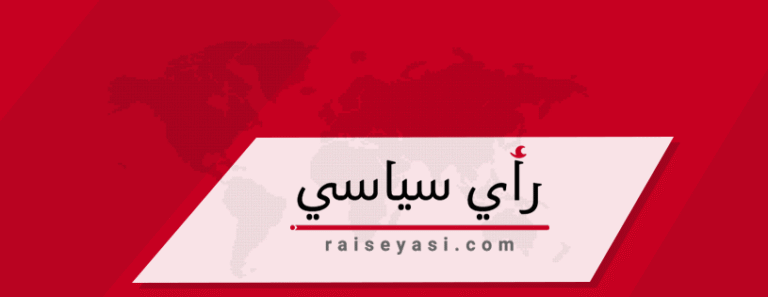By Thierry Breton – The Guardian:
Fresh threats of sanctions have just emerged from across the Atlantic, targeting Europe and any official who dares to enforce the Digital Services Act (DSA), the EU’s flagship law regulating tech platforms and digital operations. These sanctions come with new trade barriers and unprecedented export restrictions.
How long are we, citizens of the EU, going to tolerate these threats? Submit to those who want to impose their rules, their laws, their deadlines on us? Surrender to those who now presume to dictate our fundamental democratic and moral principles, our rules for how we live together and even how we protect our own children online? Why and in whose name would we agree to cast aside our twin digital regulations, the DSA and the Digital Markets Act (DMA), which were voted into law with clarity, courage and conviction by a landslide in the European parliament? (It is worth recalling that MEPs voted for the DMA by 588 votes to 11, with 31 abstentions, and for the DSA by 539 votes to 54, with 30 abstentions.)
An ever-widening gulf of misunderstanding is opening up between Europe and the United States on digital regulation. A gulf that the major tech platforms – American, in this case – are exploiting to the hilt. And that is deeply regrettable. Because regulating the information space is not optional: it is a sine qua non for turning the narrow mercantile logic of a few into a genuine contribution towards human progress and the common good.
Throughout history, humanity has managed to regulate its territorial, maritime and airspace. This is the prerogative of sovereign states. It is the essence of sovereignty itself. To renounce, today, the task of regulating the fourth domain – the digital space – by leaving it to a handful of private actors would be a historic abdication of the public sphere, of political will, of the democratic promise.
The DMA and the DSA are, in truth, nothing more than the extension of our social and democratic norms from the physical world into the digital one. In other words: the rule of law. Europe is the first and only continent to have taken this step. It has every reason to be proud.
Let us be absolutely clear: regulating the digital space has never been, and will never be, an assault on freedom of expression. On the contrary, this freedom has always been a legitimate concern and a core demand of the European parliament.
Europe is free to define its own laws and policies, and remains an open market. But that openness comes with one condition: our laws must be respected. Our democratic sovereignty must be upheld. That is non-negotiable. Not for sale. Platforms, wherever they come from, must now comply with our democratic framework if they wish to access our markets. Otherwise they will face heavy sanctions, which the European Commission is duty-bound to apply firmly and swiftly.
There are no tariffs. There is no attempt to shut anyone out. There is no desire for prohibition in our European digital space. This is quite the opposite of what the US has imposed on the physical world of trade. A punitive unilateral US tariff regime is already weighing heavily on the EU. And that should make us reflect.
Let us be blunt: an alternative EU negotiating path was possible; one that did not involve our submission. Pre-emptive capitulation was not the only option: there should have been an assumed balance of power between partners of equal weight.
Why is Europe – the US’s largest trading partner – not treated on the same terms as Mexico or Canada, which have trade volumes with the US that are comparable to the EU’s? After months of tough negotiations with the Trump administration, they maintained full exemptions from tariffs on more than 90% of their exports, and tariffs ranging from 10% to 50% on the rest. Their overall average tariff rate now stands below 5%. This was the result of four months of hard, head-to-head negotiation between Mexico, Canada and the US. It was not a foregone conclusion, but the fight was worth it.
The commission rightly entered into negotiations on the same basis – zero for zero – across a very broad scope of products. Why then did Europe end up lowering its guard and accepting a 15% tariff on European exports to the US, while conceding zero tariffs on US imports, including most agricultural products?
Worse still, in order to benefit from this supposed “special discount”, Europe is now forced to commit to buying $750bn worth of US energy, and to invest an additional $200bn every year in the US economy, on top of the current investment flow of $300bn. Is this truly the best deal Europe could have hoped for?
We were told that capitulation was preferable to uncertainty and the risk of a trade war. Wars, it is true, often end in surrender. But after conceding so much to secure hypothetical tariff stability – an understandable demand from our businesses – what real guarantees have we obtained?
What if Europe is “punished” again, this time for not buying enough US gas? Or if its businesses choose instead to invest those hundreds of billions into the European economy and jobs?
We were told humiliation was the price we had to pay for stability. But if we don’t push back now, we will get humiliation and instability. Will this latest assault on our digital laws finally be enough to wake us up?
The time has come to rise up. Europeans must stand together and proclaim loud and clear: “Enough is enough, es reicht, ça suffit, adesso basta, dość tego, ya basta …” Europe, stand up!


